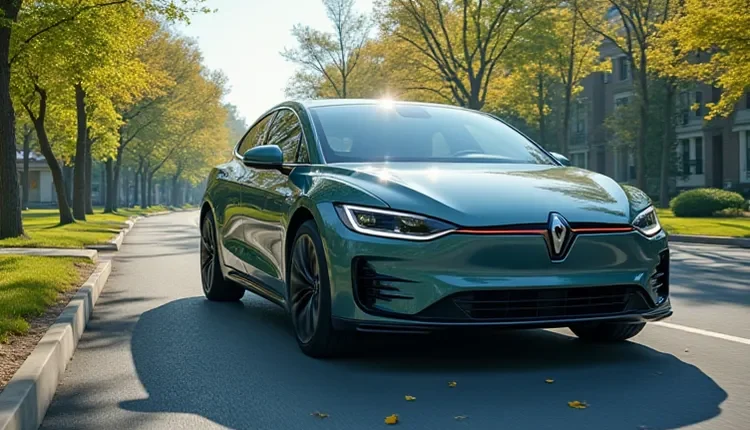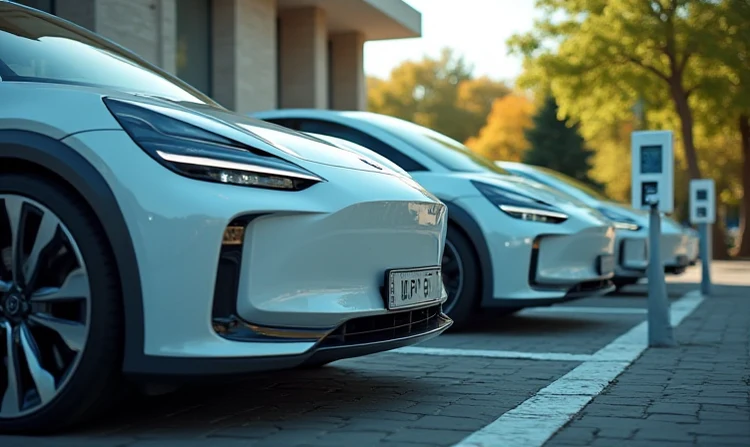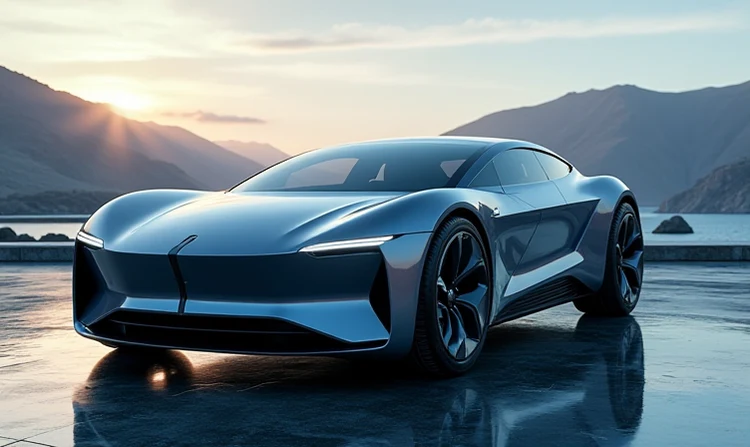🚗 Electric vehicles: a sustainable future of transport 🌿
Electric vehicles are becoming not just an alternative to traditional cars, but also a key element of sustainable consumption in the transport industry. They offer new opportunities to reduce environmental impact and improve ecology.
🌱 Electric vehicles as part of sustainable consumption
Electric vehicles significantly reduce greenhouse gas emissions compared to traditional petrol or diesel vehicles. They use electricity as a source of energy, which helps reduce air pollution.
🚀 Development of infrastructure for electric vehicles
For a full transition to electric vehicles, it is important to develop the appropriate infrastructure:
- Charging stations. The development of a network of charging stations is key to the convenience of using electric vehicles.
- Battery recycling: Developing efficient methods for recycling batteries will help reduce environmental damage.
A selection of electric vehicle products is available here, making it easy for consumers to find and purchase the accessories and equipment they need.
📊 Comparison of electric cars and traditional cars
| Parameter | Electric cars | Traditional cars | Rating |
|---|---|---|---|
| CO2 emissions | Low | Tall | ⭐⭐⭐⭐⭐ |
| Operating costs | Below | Higher | ⭐⭐⭐⭐ |
| Oil addiction | Absent | Tall | ⭐⭐⭐⭐⭐ |
Continuing with the topic of electric vehicles and sustainable consumption, let's take a closer look at the benefits of electric vehicles and the challenges associated with their widespread adoption.
🌟 Benefits of Electric Cars for the Environment
Electric vehicles offer a number of environmental benefits:
- Reducing air pollution. The absence of exhaust gases reduces the level of air pollution in cities.
- Energy efficiency: Electric motors are more efficient than traditional combustion engines.
🚧 Challenges of Infrastructure Development
The development of infrastructure for electric vehicles faces a number of challenges:
- Insufficient number of charging stations. Expansion of the charging station network is necessary for ease of use.
- High cost of batteries. Reducing the cost of batteries is key to reducing the overall cost of electric vehicles.
📈 Impact on the automotive industry
The transition to electric vehicles is having a significant impact on the automotive industry:
- Changing production lines: Automakers are adapting their production facilities to make electric vehicles.
- Innovation and research. Investments in research and development in the field of electric vehicles are increasing.
Continuing with the topic of electric vehicles and sustainable consumption, let's look at the future of the electric vehicle industry and its contribution to sustainable development.
🌐 The Future of Electric Vehicles and Sustainable Development
The future of electric vehicles promises to be a game changer in the context of sustainable development:
- Battery Innovations: Advances in battery technology will improve the efficiency and reduce the cost of electric vehicles.
- Integration with renewable energy sources. Electric vehicles can become part of smart energy systems integrated with renewable energy sources.
🚀 The Role of Governments and Regulators
Governments and regulators play a key role in promoting electric vehicles:
- Incentives and subsidies: Providing incentives for the purchase of electric vehicles and developing infrastructure.
- Regulatory standards. Establishing environmental norms and standards that facilitate the transition to electric transport.
📊 Impact on other industries
Electric vehicles are also impacting other industries:
- Energy: Growing demand for electricity is driving the development of clean energy.
- Urban planning. The need to integrate charging stations into urban infrastructure.
To conclude our review of electric vehicles in the context of sustainable consumption, we will take stock and consider how electric vehicles can shape the future of sustainable mobility and impact society and the economy.
🌍 Electric Vehicles: Changing the Landscape of Sustainability
Electric vehicles are an important element in the strategy to achieve a more sustainable future:
- Reduced environmental impact: Switching to electric transport helps reduce greenhouse gas emissions and combat climate change.
- Stimulating economic growth. The development of the electric vehicle industry creates new jobs and promotes innovation.
🚗 Interaction with Consumers and Society
To successfully implement electric vehicles, it is necessary to take into account the needs and expectations of society:
- Educational initiatives: Raising awareness of the benefits of electric vehicles among consumers.
- Improving accessibility. Reducing the cost and making electric vehicles more accessible to the general population.
📈 Impact on Global Trends
Electric vehicles are influencing global economic and environmental trends:
- Transformation of the energy sector: Growing demand for electricity to charge electric vehicles is driving the transition to renewable energy sources.
- Changing urban landscapes. Adapting urban infrastructure for the ease of use and charging of electric vehicles.
💎 Results and conclusions
Electric vehicles play a key role in the transition to sustainable consumption and promise to significantly transform both the automotive industry and society as a whole. Not only do they help reduce environmental impact, but they also open up new economic prospects by stimulating innovation and sustainable development. In the future, they could become the standard for an ecological and efficient transport system.


